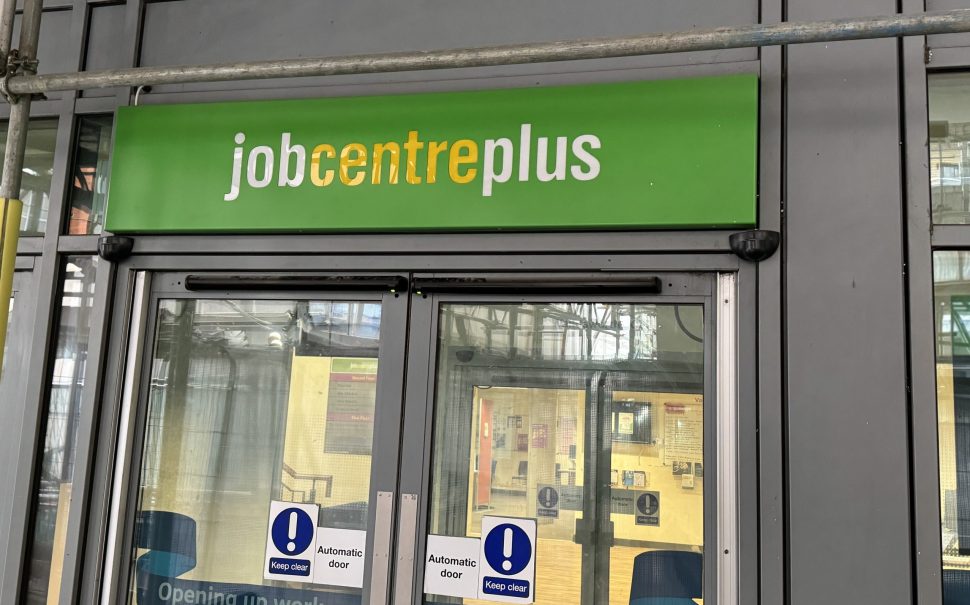The number of people starting claims on the Universal Credit (UC) scheme has increased significantly since this time last year.
The latest Department for Work and Pensions (DWP) data, released in the middle of November showed the total number of claims in London surged from 28,129 in October last year to 40,074 in October this year.
East London has seen the biggest impact, as the number of new claims was at 7,184 people last year, which increased to 11,870 this October.
A DWP spokesperson said: “As more people move to Universal Credit from legacy benefits, we can expect a rise in the number of claimants.
“We are committed to reviewing Universal Credit so people receive the support they need as swiftly as possible, while our plan to get Britain working will help more people into work and spread opportunity and prosperity to everyone, wherever they live.”
With the ending of various benefits like the Child Tax Credit, Working Tax Credit, Housing Benefit and Income Support, there has been a push for people to move to UC.
However, not everyone is onboard with this move, including healthcare worker Shyana Stephenson, 40, who was forced to move to UC despite still being employed.
She was originally on the Working and Child Tax Credit, due to having terminal neuralgia and not being able to consistently work.
Since moving to UC, she has faced challenges, including having her family need wait for six weeks without income due to the delay in payment that comes with starting the scheme.
Furthermore, it was the Jobcentre worker who missed Shyana’s first scheduled phone appointment.
She said: “I found it exhausting and difficult to get someone to help and ended up using citizens advice to help me fill out my to do list on the UC website.
“They also seem very much invasive and demanding on me to be at various appointments to get the ball rolling.”
Shyana’s daughter also missed out on UC payment for four weeks as she received the call whilst giving birth.
She added: “if you’re not going to give people money for up to six weeks, what do you think is going to happen in that time.
“I am going to need electricity, gas, the kids are going to want to eat, I cannot even predict to you what will happen.”
Lewisham Foodbank Project Manager, Sarah Vitty, sees many people attending her centre who have experienced similar challenges whilst trying to claim UC.
She said: “A lot of people report that they find the systems quite tricky and complicated, and they get themselves into a mess sometimes because they are not sure what they need to do.
“We also see a lot of people who are not managing on UC and do not have enough money left for food and heating.”
These experiences reflect new research by the Trussell Trust that revealed the inadequacies of Universal Credit across the country, with almost half of people running out of food in August.
They have established the Essentials Guarantee Campaign along with the Joseph Rowntree Foundation, calling on the government to ensure the basic rate of UC can at least cover the cost of essentials like food, household bills and travel.
Vitty highlighted housing issues being a major root cause of these financial problems around the borough of Lewisham.
She added: “Often the basic costs of housing and bills plunge people into a negative budget and do not leave enough money for food, even with UC payments.”
The DWP data also demonstrates a shift in the area of London where starts on UC are most concentrated, which moved from the South to East.
A spokesperson, however, could not comment on why the shift in location of Londoners starting claims on UC had occurred.
Mark, a 49-year-old single father of four, is one of those can understand the struggle with his housing in the Norwood area after claiming benefits for his family since February.
He said: “If I didn’t have the support of my friends and family, it would be really difficult to survive solely on the Universal Credit system.
“It’s not a lot of money to live on in practice, especially with the cost of living.”
Being a software engineer, Mark has found using the UC online system fairly simple, with his predominant struggle come from dealing with claiming the Housing Benefit through Lambeth Council.
He added: “Although the actual process works quite well with the portal, because I am in the unique situation of having temporary accommodation and the Housing Benefit is not done through Universal Credit, it has been a great source of stress and upset for me.”
But for others who are not so tech-savvy, it can be a challenge to keep on top of the online aspects of making a claim.
Andrew Reid, 43, is an online educator who has been claiming UC for his family since having twins during the pandemic.
He found the processes relatively straight forward as someone who regularly uses digital technologies, but for people like his parents in their 80s it is not so easy.
Andrew said: “The website is quite intuitive when it comes to do the budgeting and reporting online, but for people like my parents I can imagine they would be at a disadvantage if they find it harder to tap into this kind of way of doing things.
“It’s not a perfect system because nothing is, but in terms of what there is to do and how much it achieves it is much more on the positive side.”
The latest DWP data also shows how the number of UC claims can be compared to the actual number of people who get on the UC scheme.
In East London, the number of people on UC increased by almost 5,000 people between September and October this year.
This can be compared against the 15,000 people who made starts to UC in East London, showing only a third of those were successful.
The DWP states: “It is possible for people to have started on Universal Credit in one office and have moved to another office during their claim, and for this reason, the number of people on Universal Credit can be higher than the starts figure for any particular office.”





Join the discussion